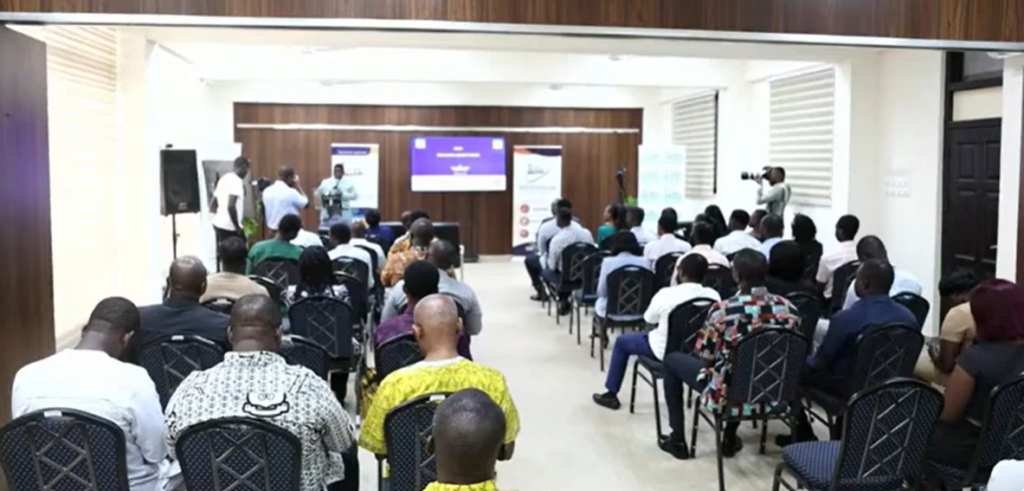The Institute of Statistical, Social and Economic Research (ISSER) has endorsed the 2025 Budget Statement and Economic Policy of the government, describing it as one that inspires hope and reflects the much-needed economic “reset” Ghana requires.
The Institute, however, cautioned that realising the budget’s potential depends heavily on strict fiscal discipline, realistic revenue targets, and effective implementation of proposed reforms.
Presenting ISSER’s independent review of the 2025 budget, Director of the Institute, Professor Peter Quartey, acknowledged the government’s ambitious roadmap and called the reset agenda a great idea.
According to him, the policy direction signals a shift towards correcting past fiscal excesses, rebuilding macroeconomic stability, and restoring investor confidence.
ISSER’s analysis began with a sobering assessment of the global economic outlook, highlighting marginal global growth projections — slipping from 3.3% in 2023 to 3.2% in 2024 — alongside volatile commodity prices, supply chain disruptions, and geopolitical tensions that threaten developing economies like Ghana.
“Geopolitical power plays, the Trump effect, and volatility in commodity markets, including cocoa prices dropping from $7,300 to $6,000 per metric tonne. When superpowers sneeze, we catch a cold,” he warned.
Nonetheless, Sub-Saharan Africa’s growth is expected to rise modestly from 3.8% in 2024 to 4.2% in 2025, offering some hope. “For Ghana, this global backdrop makes the 2025 budget’s theme of reset not just appropriate but necessary,” Prof. Quartey noted.
Ghana’s economic growth rebounded to 5.7% in 2024, driven by ICT, mining, and construction. However, ISSER notes the economic slowdown to 4% in 2025 — below the regional average — largely due to reduced capital expenditure, tight fiscal consolidation, and the gradual rollout of the 24-hour economy initiative.
“The 24-hour economy is a medium to long-term strategy. It will take time to show results,” Prof. Quartey emphasised.
The decline in projected industrial growth from 7.1% to 3.8% and the sluggish performance of agriculture, which grew just 2.8% in 2024, signal challenges ahead. “When agriculture and industry weaken, jobs and incomes suffer. We must watch this closely,” he added.
Fiscal Discipline is critical for the “Reset.”
One of the budget’s most significant features is its attempt to restore fiscal discipline. Ghana recorded a 7.9% fiscal deficit in 2024 — well above the revised target of 4.2%. Revenue mobilization fell short, while expenditure exceeded projections.
The 2025 budget proposes a 16.8% increase in domestic revenue and a 3.8% cut in spending. Debt-to-GDP now stands at 61.8%, down from over 70% after restructuring, but still above the International Monetary Fund’s (IMF) recommended 55% for developing countries.
Prof. Quartey commended the focus on auditing arrears, reviewing the budget implementation process, and establishing an independent Value-for-Money office to promote accountability.
“These are bold and necessary steps. I strongly support the value-for-money audit to curb hidden beneficiaries of state contracts,” he said.
However, he cautioned that over-reliance on domestic borrowing to fund the deficit could stifle private sector growth. “Government borrowing could crowd out SMEs from the credit market, aggravating unemployment and slowing economic activity,” he warned.
The government plans to increase income and property tax revenue by 45.4% — an ambitious target ISSER flagged as potentially unrealistic. “We must question how this target will be achieved.
Without a clear plan, we risk introducing more taxes mid-year,” Prof. Quartey warned.
While ISSER applauded efforts to leverage digital systems for tax compliance, they stressed that the tax refund system must be fixed. “If businesses don’t get timely refunds, compliance will drop. People must have faith in the system,” he urged.
ISSER described Ghana’s inflation situation as worrying, with the Bank of Ghana missing its 8% ±2% target since 2021. Although inflation declined from 55% in 2022 to around 23%, the 2025 target of 11.7% appears overly ambitious.
“Achieving this requires policy coordination, especially between BoG and the Ministry of Finance. We must target key items in the consumer basket like food to tame inflation,” he recommended.
Sectoral highlights: Opportunities and Risks
Prof. Quartey welcomed the budget’s support for agro-processing, textiles, and cashew industries, plus the removal of the E-Levy and COVID-19 levy — measures likely to ease the burden on businesses and consumers.
However, he raised concerns about resource allocation for initiatives like the proposed Women’s Development Bank, questioning the GHS 51.3 million allocation against capital requirements of over GHS 400 million. “Supporting existing banks to create women’s desks might be more practical,” he suggested.
On education and social welfare, he praised efforts to fund first-year students in public universities and extend free tertiary education to persons with disabilities. However, he questioned the sustainability of such policies given current fiscal pressures.
Similarly, the increase in school feeding from GHȼ1.50 to GHȼ2.00 per child per day was described as inadequate amidst rising food prices. “The programme must also be cleansed of partisan procurement and corruption,” he added.
Ghana’s current account surplus improved, driven by gold and crude oil exports and strong remittance inflows. However, cocoa production remains a concern due to smuggling, diseases, and illegal mining.
“We have to rethink the export retention scheme, which keeps up to 80% of earnings offshore. This limits the domestic forex supply,” Prof. Quartey noted.
ISSER described the 2025 budget as offering “a glimmer of hope” with its bold reforms, renewed focus on fiscal discipline, and plans to restructure the economy.
“This budget inspires some hope. The reset is timely and commendable. But implementation is everything,” Prof. Quartey stressed.
“Without fiscal discipline, regular policy reviews, and tough monitoring, we risk repeating past mistakes.”
He urged the government to establish an Independent Fiscal Responsibility Council to guide spending, protect the private sector, and restore macroeconomic stability.
“The 2025 budget lays the foundation. It is now up to the government to build on it — with discipline, integrity, and realism — to secure Ghana’s economic future,” he concluded.
DISCLAIMER: The Views, Comments, Opinions, Contributions and Statements made by Readers and Contributors on this platform do not necessarily represent the views or policy of Multimedia Group Limited.

